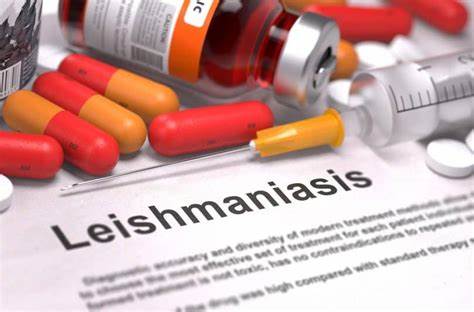Advancing Quality Integrated Health Services Through Relational Community Engagement
In recent years, the global health sector has increasingly recognized the critical importance of integrated health services for improving overall healthcare delivery and outcomes. At the heart of successful integration lies a key principle: relational community engagement. This approach focuses on fostering meaningful relationships between healthcare providers, community members, and other stakeholders to deliver quality, patient-centered care. Relational community engagement not only bridges the gap between healthcare systems and the people they serve but also builds trust, promotes equity, and ensures that healthcare services meet the unique needs of diverse populations.
This comprehensive discussion explores the concept of integrated health services, the role of relational community engagement, its implementation strategies, challenges, and the transformative potential it holds for healthcare systems worldwide.
Understanding Integrated Health Services
Integrated health services refer to the coordinated and seamless delivery of healthcare across various levels, settings, and providers. The goal is to ensure that individuals receive comprehensive and continuous care that addresses their physical, mental, and social health needs.
Core Elements of Integrated Health Services:
- Continuity of Care: Smooth transitions between different healthcare providers and levels of care.
- Comprehensive Services: Addressing preventive, curative, and rehabilitative health needs.
- Patient-Centered Approach: Tailoring care to the individual’s preferences, values, and social context.
- Multisectoral Collaboration: Coordinating efforts across healthcare, social services, education, and other sectors.
Integrated health services are particularly critical in managing chronic diseases, maternal and child health, mental health, and infectious diseases such as HIV/AIDS and tuberculosis.
The Role of Relational Community Engagement
Relational community engagement emphasizes the importance of building trust, mutual respect, and shared decision-making between healthcare systems and communities. It moves beyond traditional, transactional interactions to cultivate long-term relationships that empower individuals and communities to take an active role in their health.
Why Relational Engagement Matters:
- Trust Building: Communities are more likely to use healthcare services when they trust providers.
- Cultural Sensitivity: Engagement ensures that services are tailored to cultural, linguistic, and social contexts.
- Equity in Access: It identifies and addresses barriers faced by marginalized groups.
- Sustainability: Programs developed with community input are more likely to be effective and sustainable.
This approach aligns with global health goals, such as Universal Health Coverage (UHC) and the Sustainable Development Goals (SDGs), which emphasize inclusivity and equity.
Strategies for Implementing Relational Community Engagement
Successfully advancing integrated health services through relational community engagement requires deliberate strategies that prioritize collaboration, transparency, and adaptability.
1. Participatory Needs Assessment
- What it is: Involving community members in identifying their health priorities and challenges.
- Why it matters: Ensures that health interventions align with actual community needs.
- Example: Conducting focus groups with rural populations to understand barriers to accessing maternal health services.
2. Community Health Workers (CHWs)
- What they do: Serve as a bridge between healthcare providers and communities.
- Why they matter: CHWs often come from the communities they serve, making them effective in building trust and delivering culturally relevant care.
- Example: Training CHWs to deliver health education and basic services in underserved areas.
3. Culturally Tailored Communication
- What it is: Designing health messages that resonate with the community’s values and beliefs.
- Why it matters: Reduces misinformation and increases the uptake of health services.
- Example: Using local languages and culturally appropriate imagery in health campaigns.
4. Shared Decision-Making
- What it is: Engaging patients and families in healthcare decisions.
- Why it matters: Empowers individuals to make informed choices about their health.
- Example: Involving patients in creating care plans for managing chronic diseases like diabetes.
5. Cross-Sector Collaboration
- What it is: Partnering with sectors such as education, housing, and social services.
- Why it matters: Addresses the social determinants of health and promotes holistic care.
- Example: Collaborating with schools to provide vaccination programs and health education.
6. Monitoring and Feedback Mechanisms
- What it is: Establishing systems to evaluate the impact of engagement efforts.
- Why it matters: Helps to identify what works and adjust strategies accordingly.
- Example: Using community surveys to assess satisfaction with healthcare services.
Challenges and Barriers
While relational community engagement has immense potential, its implementation is not without challenges.
1. Resource Constraints
- Limited funding and workforce shortages can hinder engagement efforts.
- Solution: Advocate for increased investment in community health initiatives.
2. Cultural and Linguistic Diversity
- Diverse populations may have varying needs and preferences.
- Solution: Employ culturally competent staff and tailor services accordingly.
3. Mistrust in Healthcare Systems
- Historical injustices or poor service delivery can lead to mistrust.
- Solution: Build relationships through consistent and respectful communication.
4. Resistance to Change
- Healthcare providers may be resistant to adopting new engagement practices.
- Solution: Provide training and highlight the benefits of relational approaches.
5. Measuring Impact
- Quantifying the outcomes of engagement efforts can be challenging.
- Solution: Develop clear metrics and evaluation frameworks.
Success Stories
Numerous examples from around the world demonstrate the power of relational community engagement in advancing integrated health services.
1. Rwanda’s Community Health Program
- What they did: Trained CHWs to deliver primary healthcare and educate communities.
- Impact: Significant reductions in maternal and child mortality rates.
2. India’s Accredited Social Health Activists (ASHAs)
- What they did: Deployed local women to promote maternal and child health.
- Impact: Increased institutional deliveries and immunization rates.
3. Peru’s Community Engagement for Mental Health
- What they did: Engaged indigenous communities in designing mental health programs.
- Impact: Improved access to culturally sensitive mental health services.
Relational community engagement offers a transformative pathway to advancing quality integrated health services. As healthcare systems worldwide grapple with rising demands and inequities, this approach can serve as a cornerstone for building trust, fostering inclusivity, and achieving better health outcomes.
To fully realize its potential, stakeholders must prioritize:
- Investment in Community Health Infrastructure
- Capacity Building for Healthcare Providers and CHWs
- Scalable Models of Engagement
- Ongoing Research and Innovation
By placing relationships at the center of healthcare, we can move closer to a future where every individual has access to the high-quality, integrated care they deserve. This shift will not only improve health outcomes but also strengthen the social fabric of communities, ensuring resilience and well-being for generations to come.













